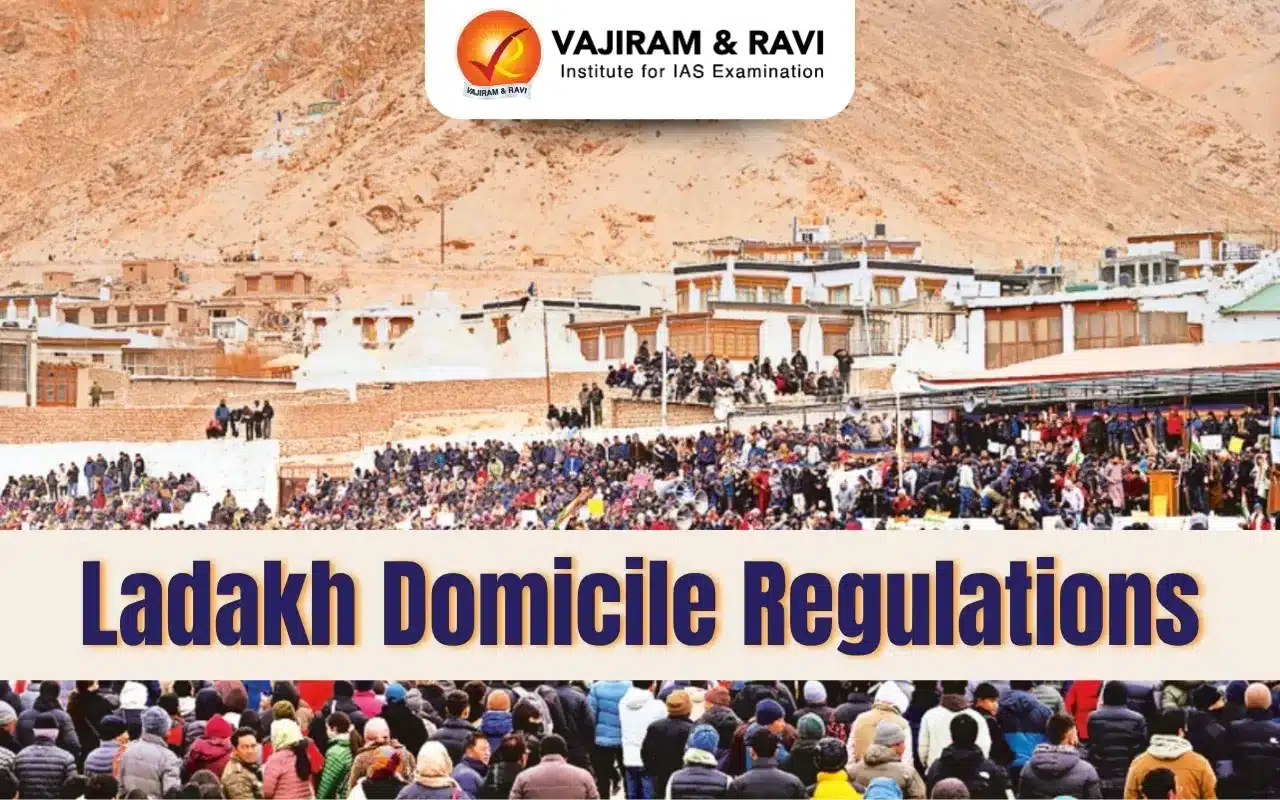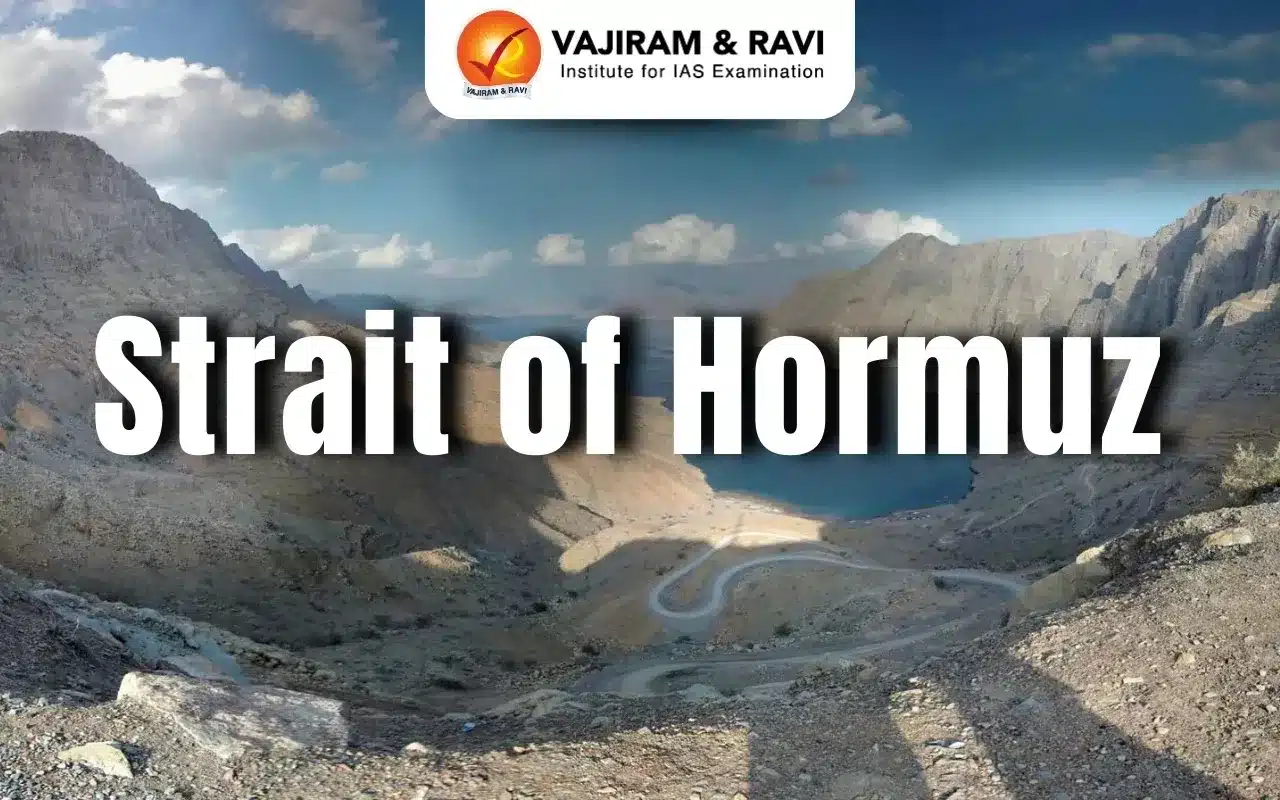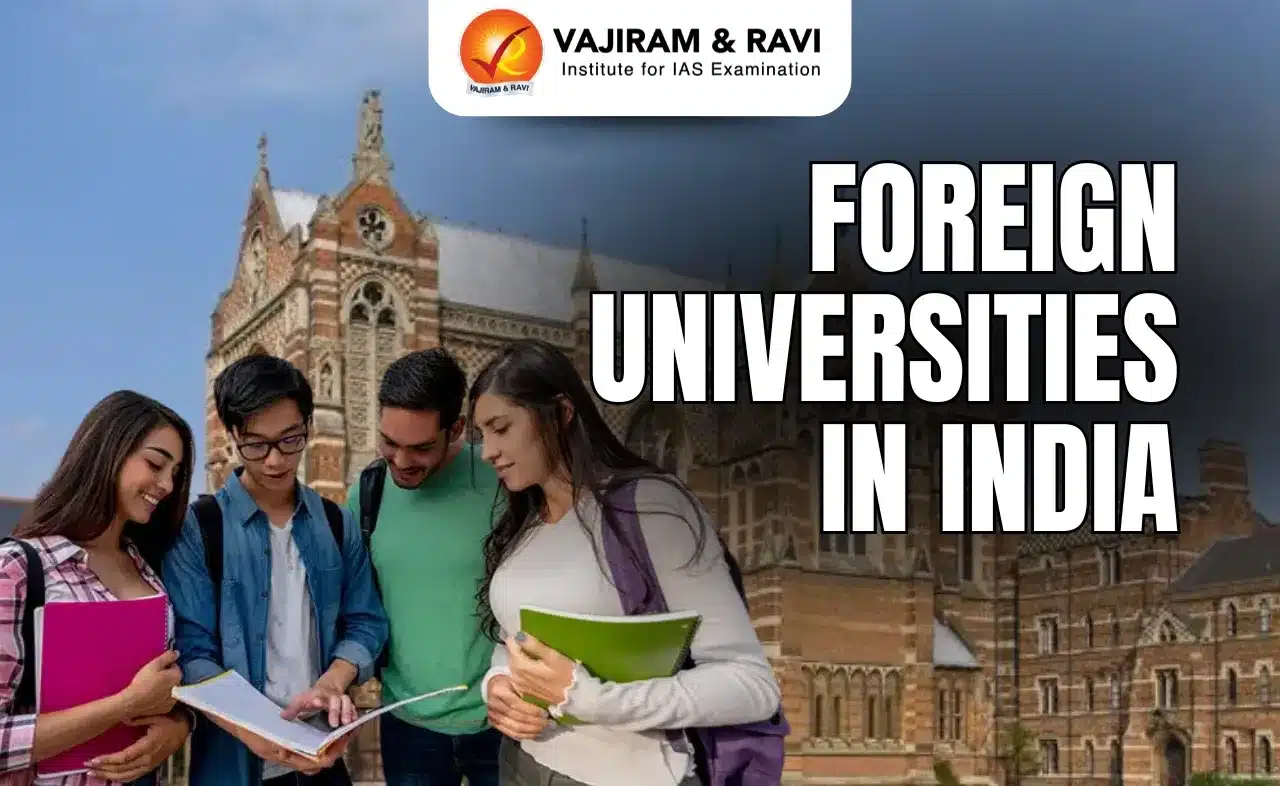Ladakh Domicile Regulations Latest News
- The Centre has introduced new regulations for Ladakh to address long-standing concerns of its civil society. The key measures include:
- Domicile-based job reservation to safeguard employment opportunities for locals.
- Recognition of local languages to preserve Ladakh’s cultural identity.
- Clear procedures for civil service recruitment, ensuring transparency and fairness.
- These steps aim to protect Ladakh’s land, jobs, and cultural heritage.
Five Newly Notified Regulations for Ladakh
- Earlier, Ladakh was governed by adapted J&K laws, such as the J&K Reservation Act, 2004 and Civil Services Decentralization and Recruitment Act, 2010.
- The 2025 regulations mark a clear departure, creating a legal framework tailored specifically for Ladakh.
Domicile-Based Government Job Reservation
- Regulation: Ladakh Civil Services Decentralization and Recruitment (Amendment) Regulation, 2025
- Introduces domicile requirement for government jobs in Ladakh.
- A domicile is defined as:
- Resident of Ladakh for 15 years; or
- Studied for 7 years and appeared in Class 10 or 12 in Ladakh; or
- Children of Central Government employees serving in Ladakh for 10 years; or
- Spouses and children of Ladakh domiciles.
Procedure for Domicile Certification
- Regulation: Ladakh Civil Services Domicile Certificate Rules, 2025
- Specifies application process and documents for obtaining domicile certificates.
- Tehsildar will issue the certificate; Deputy Commissioner is the appellate authority.
- Applications can be submitted online or offline.
Expanded Reservation in Jobs and Education
- Regulation: Union Territory of Ladakh Reservation (Amendment) Regulation, 2025
- Total reservation for SC, ST, OBC, and other backward groups capped at 85%, excluding 10% EWS quota.
- Reservation extended to professional institutions (e.g., engineering and medical colleges).
- Earlier quota in education was capped at 50%, now raised to 85%.
Recognition and Promotion of Local Languages
- Regulation: Ladakh Official Languages Regulation, 2025
- Recognizes English, Hindi, Urdu, Bhoti, and Purgi as official languages.
- Mandates support for Shina, Brokskat, Balti, and Ladakhi for cultural preservation.
Women’s Reservation in Local Governance
- Regulation: Ladakh Autonomous Hill Development Councils (Amendment) Regulation, 2025
- Reserves one-third of seats for women in the Leh and Kargil Hill Development Councils, through rotation.
Significance of the New Regulations for Ladakh
- First Tailored Governance Framework Post-Bifurcation
- These regulations represent the Centre’s first comprehensive legal and administrative effort specifically designed for Ladakh since its separation from Jammu & Kashmir in 2019.
- Alternative to Sixth Schedule Autonomy
- Instead of granting Sixth Schedule status, which offers constitutional autonomy, the Centre has chosen to address Ladakh’s demands through executive regulations.
- This approach allows targeted administrative reforms without amending the Constitution.
- Legal Safeguards for Local Jobs
- By defining domicile criteria and regulating recruitment, the government has institutionalized job reservation for locals, fulfilling a core demand of Ladakhi civil society and protest movements.
- Recognition of Linguistic Identity
- Official recognition of Bhoti and Purgi validates the cultural identity of large population groups.
- Support for Ladakhi, Balti, Shina, and Brokskat signals inclusive cultural preservation beyond dominant languages.
- Cultural Sensitivity in Governance
- The regulations reflect a sensitive and strategic response to the region’s ethnic, cultural, and political aspirations—acknowledging that governance in Ladakh must be rooted in local identity and inclusion.
Key Demands and Concerns in Ladakh
- Loss of Legislative Autonomy After 2019
- Post-abrogation of Article 370 and implementation of the Jammu and Kashmir Reorganisation Act, 2019, Ladakh was made a Union Territory without a legislature, unlike Jammu & Kashmir.
- This shift placed Ladakh under direct central control, raising concerns about self-governance.
- Fear of Cultural and Ecological Erosion
- Residents feared that, without constitutional safeguards, Ladakh’s tribal identity, fragile environment, and limited resources could be exploited by external economic and demographic forces.
- Demand for Sixth Schedule Status
- Ladakhi groups strongly demanded inclusion under the Sixth Schedule of the Constitution, which grants tribal-majority regions legislative and financial autonomy via autonomous district councils.
- The demand is justified by the fact that over 90% of Ladakh’s population belongs to Scheduled Tribes.
Limitations of the New Regulations for Ladakh
- Lack of Constitutional Safeguards
- The regulations are issued under Article 240, meaning they are executive decisions, not constitutional provisions.
- Unlike the Sixth Schedule, they do not guarantee permanence and can be amended or revoked unilaterally by the Centre.
- No Protection for Land Ownership
- There are no restrictions on land purchase by non-domiciles.
- This omission is critical given Ladakh’s ecological sensitivity and the risks posed by unchecked tourism and infrastructure development.
- Absence of a Legislative Body
- The Ladakh Autonomous Hill Development Councils (LAHDCs) remain administrative entities, lacking legislative powers.
- In contrast, the Sixth Schedule provides Autonomous District Councils with authority over land, forests, education, and local customs.
- Cultural Recognition Lacks Implementation Plan
- Though local languages are officially recognized, there is no roadmap for their use in education, governance, or the judiciary.
- The move remains symbolic, without tangible cultural or institutional integration.
Ladakh Domicile Regulations FAQs
Q1. What is the new job rule for Ladakh?
Ans. Jobs in Ladakh’s government sector now require domicile status, ensuring employment preference for local residents.
Q2. How is domicile defined in Ladakh?
Ans. A person must reside for 15 years, study for 7 years, or have parental links to Ladakh to qualify.
Q3. Which languages gained official status in Ladakh?
Ans. Bhoti, Purgi, Hindi, Urdu, and English are official; support is mandated for Ladakhi, Shina, Balti, Brokskat.
Q4. What educational reservations have changed?
Ans. Reservation in professional colleges is increased to 85% for SC/ST/OBC groups, excluding the 10% EWS quota.
Q5. Do these rules meet Ladakhi demands?
Ans. Partially—they lack land safeguards, legislative power, and constitutional permanence sought through Sixth Schedule inclusion.
Last updated on June, 2025
→ UPSC Notification 2025 was released on 22nd January 2025.
→ UPSC Prelims Result 2025 is out now for the CSE held on 25 May 2025.
→ UPSC Prelims Question Paper 2025 and Unofficial Prelims Answer Key 2025 are available now.
→ UPSC Calendar 2026 is released on 15th May, 2025.
→ The UPSC Vacancy 2025 were released 1129, out of which 979 were for UPSC CSE and remaining 150 are for UPSC IFoS.
→ UPSC Mains 2025 will be conducted on 22nd August 2025.
→ UPSC Prelims 2026 will be conducted on 24th May, 2026 & UPSC Mains 2026 will be conducted on 21st August 2026.
→ The UPSC Selection Process is of 3 stages-Prelims, Mains and Interview.
→ UPSC Result 2024 is released with latest UPSC Marksheet 2024. Check Now!
→ UPSC Toppers List 2024 is released now. Shakti Dubey is UPSC AIR 1 2024 Topper.
→ Also check Best IAS Coaching in Delhi
Tags: Ladakh Domicile Regulations mains articles upsc current affairs upsc mains current affairs
























